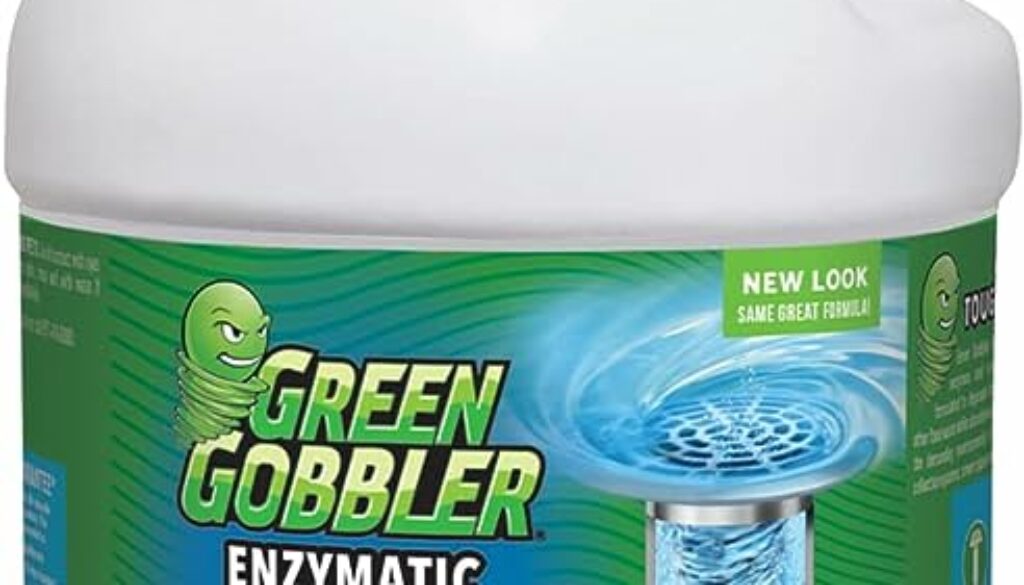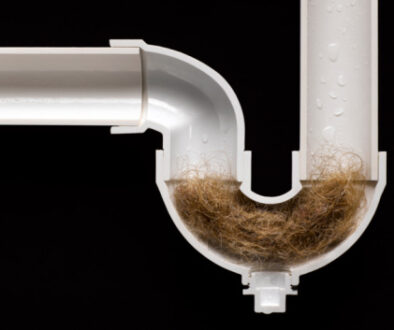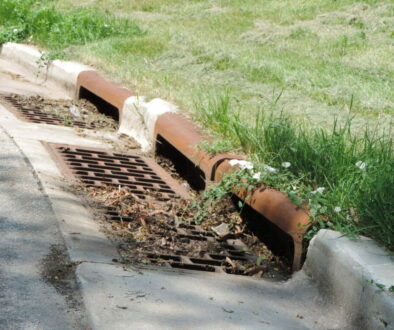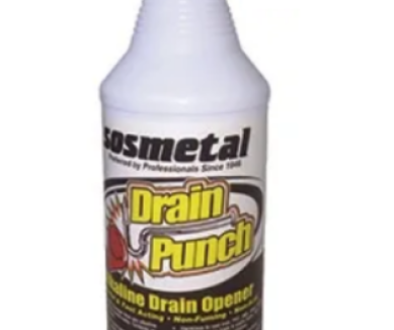What Drain Cleaner Is Safe For Septic Tanks
So you’ve got a septic tank, huh? Well, it’s important to take care of it properly to avoid any messy situations. One crucial aspect of septic tank maintenance is using the right drain cleaner. You might be wondering, “What drain cleaner is safe for septic tanks?” Well, worry not, because we’ve got all the answers you need right here!
Finding the right drain cleaner for your septic tank can be a bit tricky. You want something that effectively clears your drains without harming the delicate balance of bacteria in your septic system. After all, those helpful bacteria are responsible for breaking down waste and keeping everything running smoothly. So, let’s dive into the world of drain cleaners and explore the options that are safe for septic tanks.
When it comes to septic-safe drain cleaners, there are a few key ingredients to look out for. Enzyme-based cleaners are one popular choice as they use naturally occurring bacteria to break down organic matter. They’re gentle on your septic system and can help maintain its health. Additionally, there are many eco-friendly options available that are free from harmful chemicals and safe for both your septic tank and the environment. So, without further ado, let’s explore the top drain cleaners that are safe for your precious septic tank!
When it comes to keeping septic tanks safe, choosing the right drain cleaner is crucial. Look for drain cleaners that are specifically labeled as safe for septic tanks. These products are usually non-toxic and biodegradable, so they won’t harm the beneficial bacteria that break down waste in your septic system. It’s also a good idea to opt for enzymatic drain cleaners, as they naturally digest organic matter without damaging your septic tank.
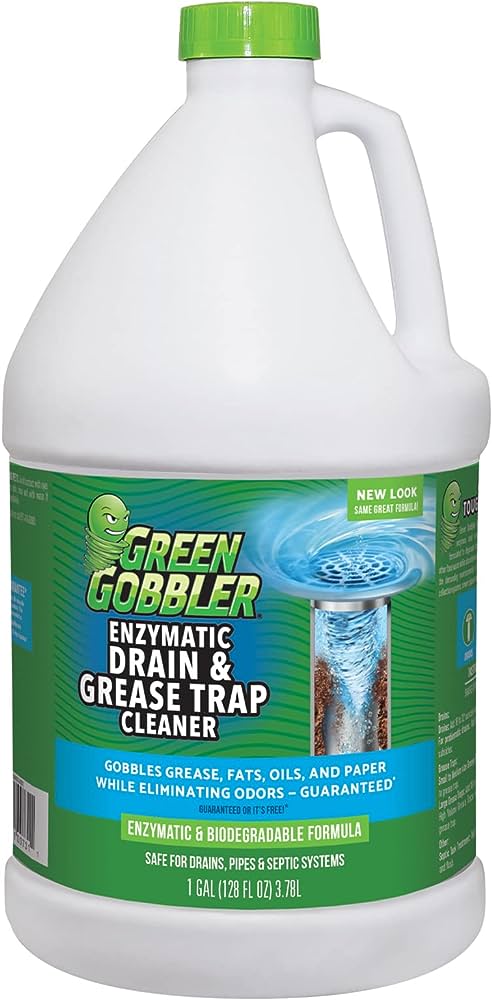
What Drain Cleaner is Safe for Septic Tanks?
Septic tanks play a crucial role in the wastewater management system of many homes and businesses. Maintaining a septic tank is essential for its longevity and proper functioning. One common concern homeowners have is which drain cleaner is safe to use when dealing with clogged drains or slow drainage. In this article, we will explore the different options available and provide you with the information you need to choose the right drain cleaner that is safe for your septic tank.
The Importance of Using Septic-safe Drain Cleaners
Septic systems are delicate ecosystems that rely on the naturally occurring bacteria and enzymes to break down waste. These bacteria and enzymes are responsible for the decomposition of solids, oils, fats, and other organic matter in the septic tank. Introducing harsh chemicals or non-septic safe drain cleaners can disrupt this delicate balance and harm the beneficial bacteria, resulting in system failure and costly repairs.
When choosing a drain cleaner for septic tanks, it is crucial to look for products that are specifically labeled as septic-safe or septic-friendly. These drain cleaners are designed to be biodegradable and non-toxic, ensuring they won’t harm the natural bacteria and enzymes in your septic tank.
Additionally, septic-safe drain cleaners are formulated to be effective in removing clogs and clearing drains without causing damage to the pipes or the septic system itself. They are typically made with natural ingredients or enzymatic solutions that target organic matter without releasing harmful chemicals into the environment.
Types of Septic-Safe Drain Cleaners
There are several types of drain cleaners that are safe for septic tanks. Let’s take a closer look at each one:
1. Enzyme-Based Drain Cleaners
Enzyme-based drain cleaners are a popular choice for septic tank owners. These cleaners contain natural enzymes that digest organic matter, breaking down clogs and clearing drains. The enzymes work by accelerating the natural decomposition process, making them highly effective in maintaining a healthy septic system.
Enzyme-based drain cleaners are safe for septic tanks because they do not contain harsh chemicals or toxins. They are also biodegradable, ensuring they won’t harm the environment when flushed down the drain.
When using enzyme-based drain cleaners, it’s important to follow the instructions carefully for optimal results. It may take some time for the enzymes to break down the clog, so patience is key.
2. Baking Soda and Vinegar
If you’re looking for a natural and eco-friendly option, you can try using a combination of baking soda and vinegar to clear clogged drains. Baking soda is a mild abrasive that can help remove organic matter, while vinegar acts as a natural disinfectant and deodorizer.
To use this method, pour a cup of baking soda down the drain followed by a cup of vinegar. Let the mixture sit for about 30 minutes, and then flush the drain with hot water. This combination can help break down clogs and keep your drains flowing smoothly.
While baking soda and vinegar are safe for septic tanks, it may not be as effective as other specialized drain cleaners for tougher clogs. Consider using this method for regular maintenance or minor blockages.
3. Bio-Enzymatic Drain Cleaners
Bio-enzymatic drain cleaners are another great option for septic tank owners. These cleaners contain a combination of bacteria and enzymes that target and break down organic matter, including grease, oil, and hair.
When applied to drains, the bacteria and enzymes in bio-enzymatic drain cleaners actively consume the organic material, allowing it to flow freely through the pipes. These cleaners are highly effective in eliminating odors, preventing clogs, and maintaining a healthy septic system.
It is important to choose a bio-enzymatic drain cleaner specifically formulated for septic tanks. This ensures that the bacteria and enzymes introduced into your system are compatible and beneficial to its functioning.
4. Homemade Natural Drain Cleaners
For those who prefer a DIY approach, there are several homemade natural drain cleaners that are safe for septic tanks. These solutions often involve simple household ingredients such as baking soda, vinegar, lemon juice, or salt.
While these homemade remedies may not be as powerful as commercial drain cleaners, they can be effective for regular maintenance and minor clogs. It is important to note that the effectiveness of homemade solutions may vary depending on the severity of the clog and the condition of your septic system.
Always remember to follow safety precautions when working with any drain cleaner, including homemade solutions. Wear protective gloves and eyewear and ensure proper ventilation in the area.
Tips for Maintaining a Healthy Septic System
In addition to using septic-safe drain cleaners, there are several other tips you can follow to maintain a healthy septic system:
1. Regularly Pump Your Septic Tank
Regular pumping of your septic tank is essential to prevent solids from accumulating and causing clogs or system failure. The frequency of pumping depends on the size of your tank and the number of occupants in your household. It is recommended to have your septic tank pumped every 3-5 years to ensure optimal functioning.
2. Avoid Flushing Non-Biodegradable Items
Flushing non-biodegradable items down the toilet can lead to clogs and damage to your septic system. Avoid flushing items such as diapers, sanitary napkins, paper towels, or wipes. These items can accumulate in the septic tank and cause blockages.
3. Conserve Water
Excessive water usage can overload your septic system. Be mindful of your water consumption and adopt water-saving practices such as fixing leaks, using efficient appliances, and spreading out laundry loads over time.
4. Use Septic-Safe Household Products
Aside from drain cleaners, it is important to use septic-safe household products such as laundry detergents, soaps, and shampoos. These products are formulated to be biodegradable and won’t harm the bacteria in your septic tank.
5. Be Mindful of Your Landscaping
The location of your septic system and the landscaping around it can impact its proper functioning. Avoid planting trees or shrubs with invasive root systems near the septic tank or drain field as they can damage the system.
Conclusion
Choosing the right drain cleaner for your septic tank is vital to the health and longevity of your system. Enzyme-based drain cleaners, baking soda and vinegar, bio-enzymatic drain cleaners, and homemade natural solutions are all safe options to consider. It’s important to remember that regular maintenance and proper usage of your septic system are equally important to prevent clogs and costly repairs. By following these tips and using septic-safe drain cleaners, you can ensure a healthy and well-functioning septic system for years to come.
Key Takeaways: What Drain Cleaner is Safe for Septic Tanks
- 1. Avoid drain cleaners with harsh chemicals like bleach or ammonia.
- 2. Look for drain cleaners specifically labeled as safe for septic tanks.
- 3. Natural drain cleaners like baking soda and vinegar are often safe for septic tanks.
- 4. Regular maintenance with septic tank treatments can help prevent clogs and keep your system healthy.
- 5. Consult a professional if you’re unsure about the best drain cleaner for your septic tank.
Frequently Asked Questions
When it comes to maintaining a septic tank, using the right drain cleaner is essential. Here are some commonly asked questions about finding a drain cleaner that is safe for septic tanks.
1. Can I use regular household drain cleaners for my septic tank?
No, it’s best to avoid using regular household drain cleaners. These cleaners often contain harsh chemicals that can disrupt the natural balance of bacteria in your septic tank, leading to potential damage or clogs. It’s important to choose a drain cleaner specifically formulated for septic systems.
Septic-safe drain cleaners are designed to be gentle on the bacteria in your septic tank while effectively removing clogs and buildup. Look for products that are labeled as septic safe or septic-friendly to ensure you are using the right cleaner.
2. What ingredients should I look for in a septic-safe drain cleaner?
When choosing a drain cleaner for your septic tank, look for products that contain natural enzymes and bacteria. These ingredients work to break down organic waste and keep your septic system functioning properly. Avoid drain cleaners that contain bleach, ammonia, or other harsh chemicals that can harm the bacteria in your septic tank.
Additionally, it’s a good idea to opt for biodegradable drain cleaners that are environmentally friendly. This ensures that any residual cleaner that enters the environment through your septic system won’t cause harm to aquatic life or pollute water sources.
3. How often should I use a drain cleaner for my septic tank?
The frequency of using a drain cleaner for your septic tank depends on your specific situation. In general, it is recommended to use a septic-safe drain cleaner once every few months as a preventive measure. Regular use of a septic-safe drain cleaner can help prevent clogs and keep your septic system running smoothly. However, if you are experiencing frequent clogs or slow drains, it may be necessary to use a drain cleaner more frequently, or consult a professional to inspect your septic system.
Remember, prevention is key when it comes to septic tank maintenance, so regular use of a septic-safe drain cleaner can help minimize the chances of costly repairs down the line.
4. Are there any DIY alternatives to commercial septic-safe drain cleaners?
Yes, there are some DIY alternatives that can help keep your drains clean and septic system healthy. One option is to create a mixture of vinegar and baking soda. Simply pour a cup of baking soda followed by a cup of vinegar down the drain, let it fizz for a few minutes, and then rinse with hot water. This can help remove minor clogs and freshen up your drains. However, for more stubborn clogs or serious issues, it’s best to use a commercial septic-safe drain cleaner or consult a professional septic tank service.
It’s important to note that while DIY methods can be effective for routine maintenance, they may not be as powerful as commercial drain cleaners in handling more severe clogs or buildup. Always exercise caution and follow proper disposal guidelines when using any DIY drain cleaning methods.
5. Can using the wrong drain cleaner harm my septic system?
Using the wrong drain cleaner can indeed harm your septic system. Harsh chemicals found in regular household drain cleaners can kill the beneficial bacteria that are essential for breaking down waste in the septic tank. This disruption in the natural balance can lead to clogs, backups, and even septic tank failure. It’s important to choose a drain cleaner designed specifically for septic systems to ensure the health and longevity of your septic system.
If you have used the wrong drain cleaner or are experiencing issues with your septic system, it’s recommended to contact a professional septic tank service for an inspection and any necessary repairs or maintenance.
Summary
To keep your septic tank safe, choose drain cleaners that are labeled as septic tank safe. These cleaners are specifically designed to break down waste without harming the bacteria in your tank. Avoid using harsh chemicals, like bleach or ammonia, as they can kill the beneficial bacteria. Additionally, regular maintenance, such as pumping and inspecting your septic tank, is vital to prevent clogs and keep your system running smoothly.
Remember, taking care of your septic tank is not only good for the environment but also for your wallet. By using septic tank-safe drain cleaners and practicing proper maintenance, you can avoid costly repairs and keep your septic system working effectively for years to come.

